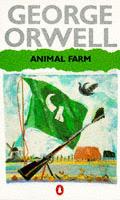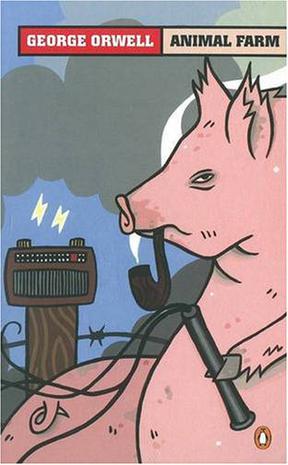标签:Orwell
-
Finding George Orwell in Burma
In one of the most intrepid travelogues in recent memory, Emma Larkin tells of the year she spent traveling through Burma, using as a compass the life and work of George Orwell, whom many of Burma's underground teahouse intellectuals call simply the Prophet.In stirring prose, she provides a powerful reckoning with one of the world's least free countries. Finding George Orwell in Burma is a brave and revelatory reconnaissance of modern Burma, one of the world's grimmest and most shuttered police states, where the term Orwellian aptly describes the life endured by the country's people. A truer picture of authoritarianism than anyone has written since, perhaps, Orwell himself. -
Decline of the English Murder
In these timeless and witty essays George Orwell explores the English love of reading about a good murder in the papers (and laments the passing of the heyday of the ‘perfect’ murder involving class, sex and poisoning), as well as unfolding his trenchant views on everything from boys’ weeklies to naughty seaside postcards. Throughout history, some books have changed the world. They have transformed the way we see ourselves – and each other. They have inspired debate, dissent, war and revolution. They have enlightened, outraged, provoked and comforted. They have enriched lives – and destroyed them. Now Penguin brings you the works of the great thinkers, pioneers, radicals and visionaries whose ideas shook civilization and helped make us who we are. -
1984
Nineteen Eighty Four, by George Orwell - Akasha Classics, AkashaPublishing.Com - It was a bright cold day in April, and the clocks were striking thirteen. Winston Smith, his chin nuzzled into his breast in an effort to escape the vile wind, slipped quickly through the glass doors of Victory Mansions, though not quickly enough to prevent a swirl of gritty dust from entering along with him. The hallway smelt of boiled cabbage and old rag mats. At one end of it a coloured poster, too large for indoor display, had been tacked to the wall. It depicted imply an enormous face, more than a metre wide: the face of a man of about forty-five, with a heavy black moustache and ruggedly handsome features. Winston made for the stairs. It was no use trying the lift. Even at the best of times it was seldom working, and at present the electric current was cut off during daylight hours. It was part of the economy drive in preparation for Hate Week. The flat was seven flights up, and Winston, who was thirty-nine and had a varicose ulcer above his right ankle, went slowly, resting several times on the way. On each landing, opposite the lift-shaft, the poster with the enormous face gazed from the wall. It was one of those pictures which are so contrived that the eyes follow you about when you move. BIG BROTHER IS WATCHING YOU, the caption beneath it ran. -
A Collection of Essays
In this bestselling compilation of essays, written in the clear-eyed, uncompromising language for which he is famous, Orwell discusses with vigor such diverse subjects as his boyhood schooling, the Spanish Civil War, Henry Miller, British imperialism, and the profession of writing. -
The Complete Novels of George Orwell
His best-known novels, Animal Farm and Nineteen Eighty-Four, are two of the most famous, well-quoted and influential political satires ever written. The other novels in this volume are also concerned with individuals at odds with repressive institutions: the corrupt imperialism of Burmese Days, disaffection with materialistic society in Keep the Aspidistra Flying, the perils of modern suburban living in Coming Up for Air and the down-and-out girls in A Clergyman's Daughter. They all display Orwell's deep understanding of human nature, his biting humour and great compassion. -
Animal Farm
Having got rid of their human master, the animals of Manor Farm look forward to a life of freedom and plenty. But as a clever, ruthless elite among them takes control, the other animals find themselves hopelessly ensnared in the old ways. Orwell's chilling story of the betrayal of idealism through tyranny and corruption, is as fresh and relevant today as when it was first published in 1945. -
1984
摘录:有史以来,大概自从新石器时代结束以来,世上就有三种人,即上等人、中等人、下等人。 这三种人的目标是完全不可调和的。上等人的目标是要保持他们的地位。中等人的目标是要同高等人交换地位。下等人的特点始终是,他们劳苦之余无暇旁顾,偶而才顾到日常生活以外的事,因此他们如果有目标的话,无非是取消一切差别,建立一个人人平等的社会。这样,在历史上始终存在着一场一而再再而三发生的斗争,其大致轮廓相同。 他们(上等人)就被中等人所推翻,因为中等人标榜自己为自由和正义而奋斗,把下等人争取到自己一边来。中等人一旦达到目的就把下等人重又推回到原来的被奴役地位,自己变成了上等人。不久,其他两等人中有一等人,或者两等人都分裂出一批新的中等人来,这场斗争就周而复始。 三等人中只有下等人从来没有实现过自己的目标,哪怕是暂时实现自己的目标。 从下等人的观点来看,历史若有变化,大不了是主子名字改变而已。 中等人只要还在争取权力的时候,总是利用自由、正义、博爱这种好听的字眼。 中等人在平等的旗帜下闹革命,一旦推翻了原来的暴政,自己又建立了新的暴政。 由什么样一种人来控制这个世界,也同样很明显。新贵族大部分是由官僚分子、科学家、技术人员、工会组织者、宣传专家、社会学家、教师、记者、职业政客组成的。这些人出身中产薪水阶级和上层工人阶级,是由垄断工业和中央集权政府这个贫瘠不毛的世界所塑造和纠集在一起的。同过去时代的对手相比,他们在贪婪和奢侈方面稍逊,但权力欲更强,尤其是对于他们自己的所作所为更有自觉,更是一心一意要打垮反对派。 这最后一个差别极其重要。与今天的暴政相比,以前的所有暴政都不够彻底,软弱无能。 在本世纪中叶出现的所谓“取消私有制”,实际上意味着把财产集中到比以前更少得多的一批人手中;不同的只是:新主人是一个集团,而不是一批个人。 把等级社会永久化的问题却比这深刻得多。统治集团只有在四种情况下才会丧失权力:
热门标签
下载排行榜
- 1 梦的解析:最佳译本
- 2 李鸿章全传
- 3 淡定的智慧
- 4 心理操控术
- 5 哈佛口才课
- 6 俗世奇人
- 7 日瓦戈医生
- 8 笑死你的逻辑学
- 9 历史老师没教过的历史
- 10 1分钟和陌生人成为朋友









